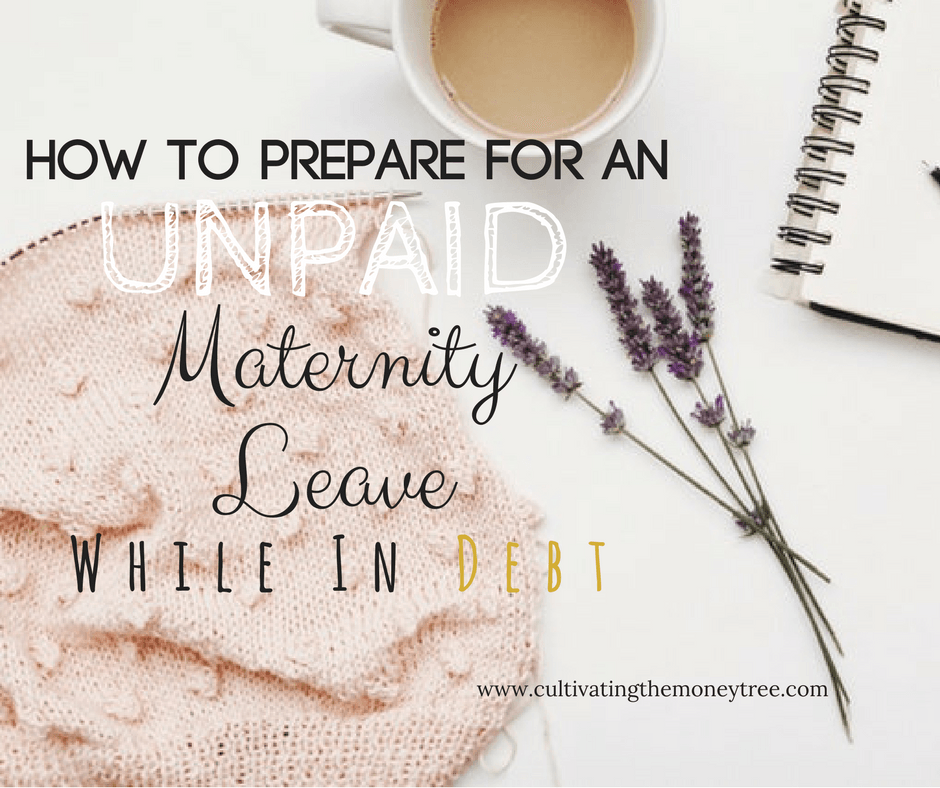DISCLOSURE: THIS POST MAY CONTAIN AFFILIATE LINKS. I MAY RECEIVE A COMMISSION FOR ANY CLICKING AND PURCHASE MADE THROUGH ANY LINK WITHIN THIS PAGE. PLEASE READ MY DISCLOSURE FOR MORE INFO
There are four basic concepts of finances that can help you gain a clear vision of how to improve your money. Once these four concepts are understood then research can start on finding your financial status. We were able to take better control of our finances when we understood our financial status. To aid in moving us closer to Financial Freedom we could set goals for the areas that needed to be improved upon.
Income
Income is the amount of money that you receive. This money is then transferred to consumer goods, savings and investments or given as charitable contributions. There are multiple ways to gain or increase your income. Whether you have multiple streams of income or one source of income it is important to understand whether that income is taxable or non-taxable through the IRS.
Earned Income
This type of income is earned by providing services or engaging in activities for someone else who pays you. Earned income can also be received by running your own business or farm. This type of income may also be required to pay taxes to the IRS or your state’s Treasury Department. Earned Income may take the form of the following:
-
-
- Wages, salaries, tips, bonuses or commission pay
- Union strike benefits
- Long-term disability benefits received prior to minimum retirement age
- Net earnings from self-employment
-
Unearned Income
This type of income is being paid to you without having to necessarily provide a service or engaging activity. Unearned income may also be exempt from being taxed or may be taxed now/later at a lower rate than earned income. Sometimes the amounts received by different forms of unearned income can be directly affected such as being lowered or raised based on the amount of earned income received. Unearned Income may take the form of the following:
-
-
- Interest and dividends
- Retirement income
- Social security
- Unemployment benefits
- Alimony
- Child support
- Gambling Winning
- Forgiven Debts
-
Understanding the type of Income you receive can help you prepare for the type of tax treatment that you will receive. This can also help you decided where and how to direct the remaining portions of your income. If you do not know where your income stands, there are many ways to find out. If you have recently filed your taxes, then you may already know what your last year’s Adjusted Gross Income stands. Unless you have had a significant change in employment or hours, your Adjusted Gross Income may remain the same.
You can also get an estimate of your monthly Gross Income by viewing your last pay stub. On your pay stub, you can see what your Year-to-date Gross Income is. Reviewing your YTD tax deductions, YTD employer deductions, and your YTD Net Income may serve to be beneficial.
Ensuring that these components of your pay stub are the correct amounts can empower you to take control of your finances. Making further decisions on expenses, savings and debt management can be more beneficial when you know what your Net Income is. This knowledge may also help you realize that your financial situation is due to having an income problem. If it is not an income problem then it may be a money management problem such as spending too much.
Once my family’s journey to financial freedom started, we realized that our income was not enough. Along with not enough income we were also spending more than our current income. While our Income has improved, our past spending problem is still haunting us in the form of debt! We have had to work really hard to evaluate our expenses and spending habits to help reduce our debt and increase our savings.
Expenses
An expense is a fancy word to use that essentially sums up the cost of personal or family living. These costs are things we spend our money to provide for our lifestyles. These items may be housing, clothing, food, water, heat, electricity, and also entertainment or leisurely activities. In order to take control of our finances, we should be tracking our spending on a monthly or yearly basis in addition to our income.
Some expenses may be easy to calculate and track. Fixed expenses can be simple to track. These expenses are consistently the same amount each time they are due or due around the same time each month or year. Other expenses may take a bit more time to track and calculate. Variable expenses may take more time to track over time. These expenses are when the amounts and the time due may vary month to month or year to year.
There are a variety of ways to track expenses that may fit your preferences. Tracking expenses through the old-fashioned use of pen and paper is one way. There is also the use of tracking expenses digitally through online software or mobile apps. I personally use both methods. I will keep my daily receipts and then enter them in a check register. Then each week I will log my daily spending into a digital budgeting tool online. I use this digital form to ensure that I am on track with my budgeted expenses.
If you are just starting out in taking control of your expenses, you may want to determine where your expenses stand in regards to your income. This task may take up to one month to discover, but you will be glad you did as it will allow you to learn where to spend less and save more money.
When we began learning how to take control of our finances, we not only calculated and tracked our expenses but we also segregated our expenses into two main and broad categories. These two categories are known as essential and non-essential expenses.
Essential
Essential expenses are those expenses that are needed for our survival. These types of expenses can vary based on lifestyle preferences, age, and geographical area. These expenses may take the following forms:
-
-
- Housing costs such as rent or a mortgage. Housing costs may also include property taxes or home insurance.
- Transportation cost such as car insurance, public transportation fares, car maintenance, and gasoline. There are some who add a car payment to the essential list. However, there are ways to get reliable vehicles without having to have a car payment. Having the newest vehicle that comes with a car payment is not necessarily an essential expense.
- Utility costs such as water, electricity, heating gas, and phone expenses. I certainly believe that having a means of communication through a home phone or cell phone is necessary for safety reasons. However, this necessary cost does not have to mean spending hundreds of dollars on the latest and greatest models.
- Food cost which is typically nutritional foods that help support the function of the body for optimum health.
- Healthcare costs such as personal sanitary items, health insurance, medical expenses, and prescriptions.
- Educational cost, Childcare cost, and Clothing cost can all be additional necessary expenses. These expenses may depend greatly on your current stage in life. This means that some of these costs may be more of a non-essential expense or non-existent expense.
-
Non-Essential
Non-essential expenses may make life easier or more enjoyable. The survival of life is not necessarily dependent on these costs. These types of expenses can depend greatly on personal lifestyle preferences, age, and geographical location. These expenses may take the following form:
-
-
- Clothing costs that are outside of the necessary need for clothing.
- Entertainment costs such as books, movies, magazines, video games and etc.
- Food cost such as dining out, snacks, candy, and soda.
- The cost found within this category can be endless. These are the costs that essentially we could live without. We can also find ways to save on these costs by using alternative methods.
-
After calculating and tracking your expenses for at least a month, you will begin to gain clarity on where you stand financially. Does your income far outweigh your expenses or do your expenses outweigh your income? If your expenses are outweighing your income then you will want to start finding out where you can cut down on your expenses or increase your income. If your income far outweighs your expenses then you may want to start finding out ways to optimize the remaining amount of income.
Savings
Savings is a type of expense, however, it is an expense that can grow your income. Striving to find extra money for savings can be beneficial to gaining control of our finances. Directing extra money into a variety of savings accounts can allow us to take care of unexpected expenses, increase our net worth, retire with confidence and obtain those life goals or luxury items that can make life just a little bit easier. As previously stated, there are a variety of reasons for wanting to or needing to build up savings which can depend greatly on your personal or lifestyle preferences. The amount of money put towards savings can also greatly vary based on your stage in life. No matter which stage of life you may be experiencing, the following types of savings can greatly benefit your financial life:
-
-
- Emergency Fund
-
According to a new report from Bankrate, only 39% of Americans stated that they would be able to pay for a $1,000 unplanned expense. I once was part of that 61% of Americans who didn’t know how we would cover an emergency or would freak out over the littlest emergency like minor car repairs. Since our family has built up our emergency fund, we have felt more confident in handling emergency situations. This does not prevent us from having emergencies because we all know that unexpected expenses arrive no matter how well we plan our life. When these unexpected expenses do surprise us, we find that it is more of a mere inconvenience versus a full-blown crisis. After we use a portion of the emergency fund, we then work hard to build it back up.
Dave Ramsey recommends starting out with an emergency fund of $1,000. This is a starter emergency fund for those who currently have no savings or have debts to tackle. After building a starter emergency fund and all debt has been eliminated, then you can consider a fully-funded emergency fund. A fully-funded emergency fund is when you have about 3 to 6 months’ worth of expenses saved. Having up to 6 months of expenses built into an emergency fund can provide security when life really throws curve balls our way such as losing a job or incurring major home repairs. Before utilizing your emergency fund we should ask ourselves whether the emergency is unexpected, necessary, and/or urgent. You can read more about what Dave Ramsey has to say about Emergency Funds here.
-
-
- Retirement Fund
-
Raise your hand if you would like to retire within your lifetime. Did you raise your hand? I know I did! If I ever want to retire, I know that building up a retirement fund will make that even more possible. There are many ways to contribute to a retirement fund. Many employers offer a retirement fund like a 401(k) or a 403(b). Contributing to your employer’s retirement fund can be fairly easy. Having automatic deductions of a specific amount from your paycheck can be a simple way to contribute. These deductions can also be taken out before taxes which essentially puts more money in your pocket. It is never too early or too late to start contributing to your employer’s retirement plan options. If you do not know what type of retirement plan your employer offers, I recommend contacting your employer’s HR representative.
Employer-sponsored retirement funds are not the only type of retirement funds. IRAs are individual retirement funds that can be contributed to outside of having an employer. These options are great for individuals wanting to grow their retirement portfolio outside of their employer sponsor retirement funds. Also a great option for individuals whose employers do not offer a retirement fund. In addition, to IRAs, there is an assortment of investments that individuals can contribute towards in order to increase their income and fund their retirement goals.
-
-
- Life Goals Fund
-
Outside of emergency funds and retirement funds are additional savings accounts that you can contribute to. These accounts may be for life goals such as buying a home, purchasing a new car, saving for a vacation or luxury items. The opportunities are endless! However, the goal is to take control of your money by setting a savings plan for your life goals. This should be accomplished without going into debt or decreasing your net worth. The best part about savings accounts is that you have the potential to earn interest on the money you put into these type of accounts.
Are you ready to start saving or have you started saving already? Saving money can be simpler than you think!
Debt
There are many forms of debt such as credit cards, personal loans, automobile loans, mortgages, student loans, payday loans, and other various lending options. Debt is money that has been borrowed from a lender and is then paid back over a set amount of time. Acquiring debt allows us to gain money for things we need or want and the ability to pay it back over time. However, debt most certainly comes with a price. Many times debt comes with high-interest rates. With high-interest rates, there also comes high repayment plans. Having a high repayment plan may take away our ability to put our money to its most beneficial use.
Our family borrowed money during a time when our income couldn’t cover unexpected expenses. Due to these decisions, we are still paying for these unexpected expenses years after it has already happened. It has robbed us of our ability to plan for a better financial future for far too long. Currently, that is the journey our family is on. We are working on paying off our debts to help us gain control back of our money. We are gaining control of our debt by using the Debt Snowball method recommended by Dave Ramsey. Before we could start tackling the debt, though, we had to first know these three components of debt:
- Total Amount Of Debt Owed
- Who We Owed Debt To
- What Were Our Debts Monthly Payments
Once we understood how much we owed, who we owed too, and how much the monthly expense was towards our debt we could begin forming plans to paying off the debt one by one. The Debt Snowball has us targeting our smallest debt first and paying it off as fast as we can. Once we have paid off that amount, we would add the monthly payment from that debt to the next smallest debt and so on. So far we have paid off two of our smallest debt amounts. We were able to accomplish this by increasing our income, decreasing our monthly expenses, and building an emergency fund. This allowed us to stop using debt to cover an unexpected expense. You can learn more about Dave Ramsey’s Debt Snowball here.
Related Posts:
- Gain More Control With These Savings Options
- Why Are You Not Reviewing Your Credit?
- Choosing The Right Financial Institution For You
It may take time to fully understand these 4 money concepts. Understanding these money concepts can help you begin making the changes necessary for your money. This way you can aim to reach the life you desire. Our family has learned that the greatest things in life to achieve can take time. The sooner we begin to learn and track, the faster we can take control of our money and reach the financial freedom we desire.
What actions have you begun to take control of your money? Which money concepts do you struggle with the most?








